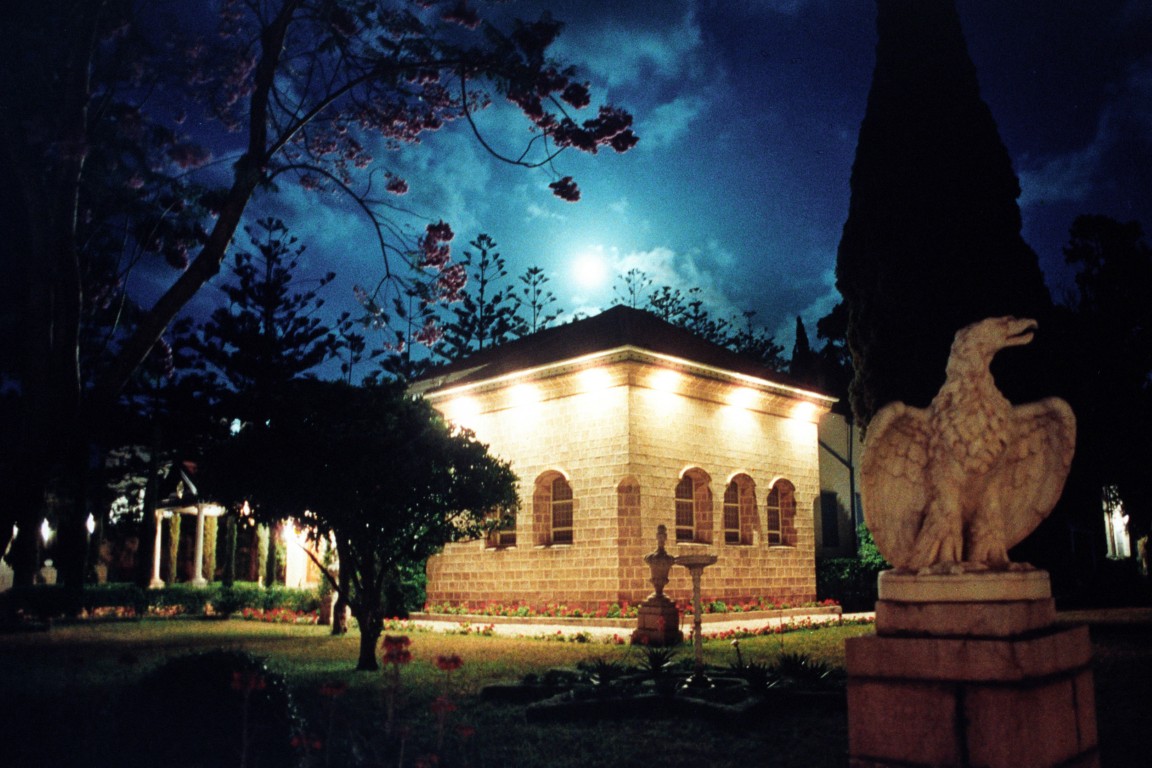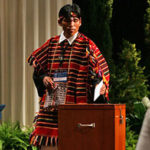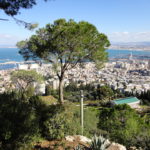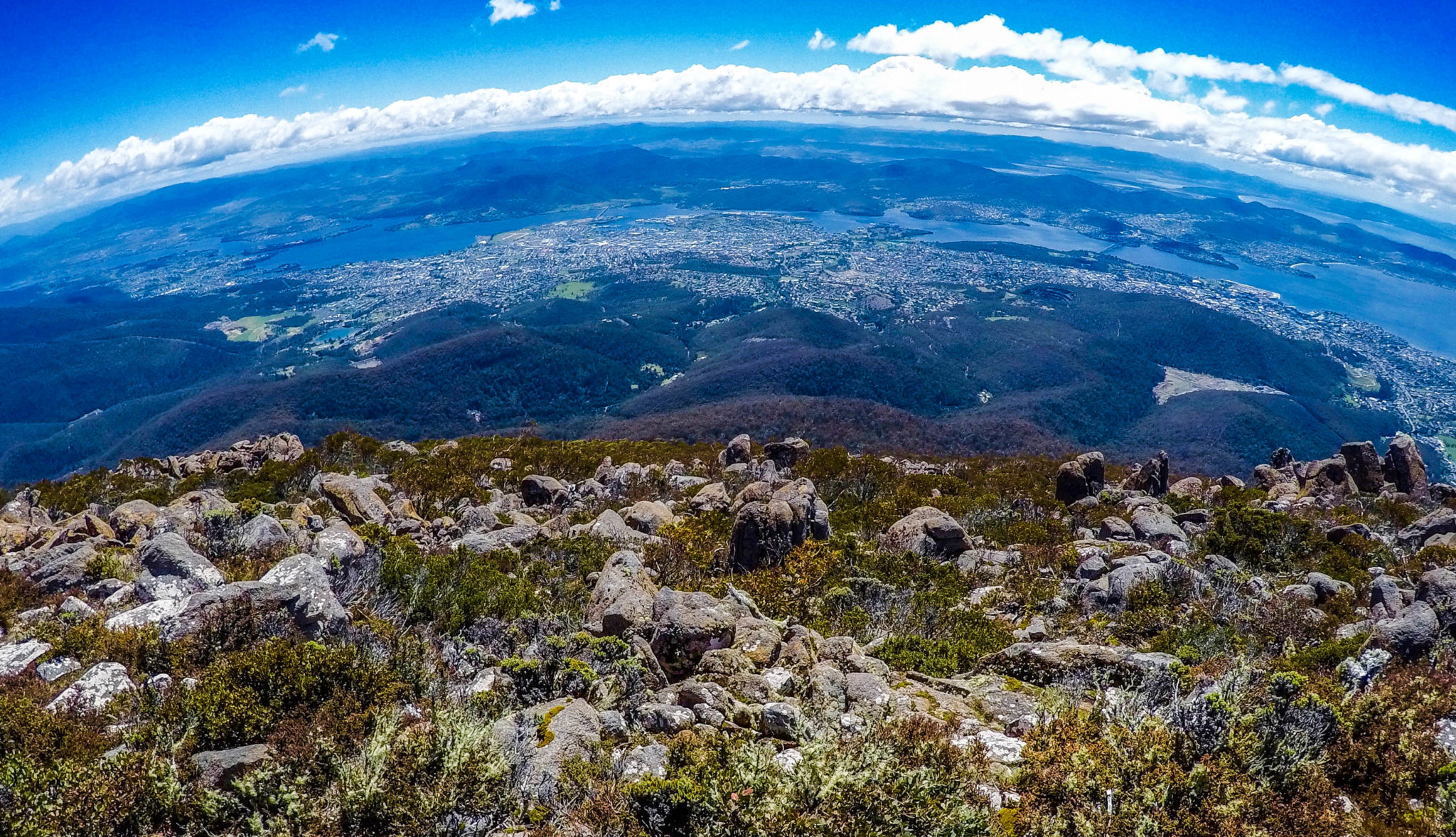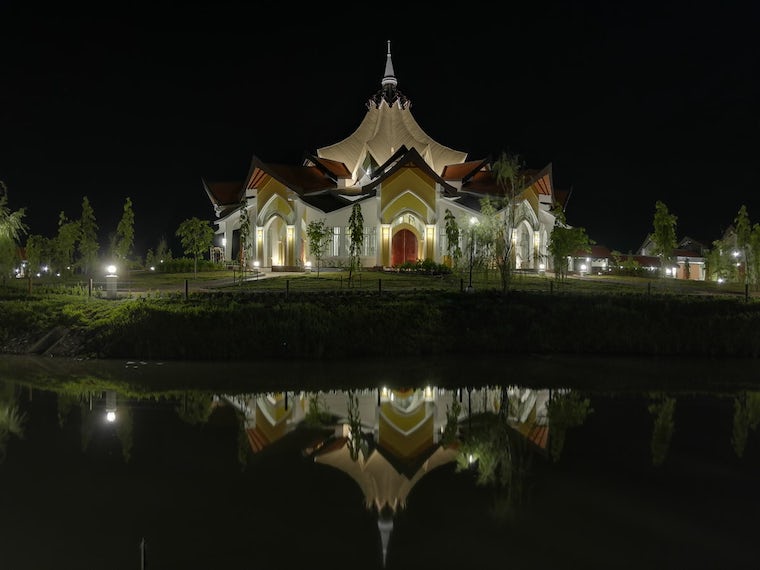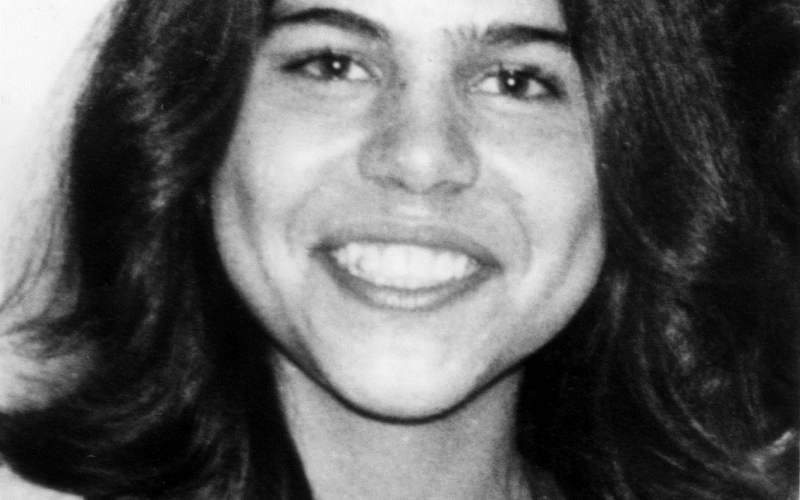
Mona Mahmudnizhad – Speaking Truth to Power

The specific phrase “speaking truth to power” appears to have entered the collective conscious initially among the Quakers. It is in the title of a 1955 study of international conflict prepared by the Friends Service Committee and the study cites the Quaker tradition as a source of the concept.[1]
The idea has more ancient resonances. Prophets have always spoken truth to power. The encounter between Jesus and Pontius Pilate also calls the concept to mind.
For this purpose I was born and for this purpose I have come into the world—to bear witness to the truth. Everyone who is of the truth listens to my voice.” Pilate said to him, “What is truth?”[2]
As is well known Pilate had Jesus crucified. There is another question that might have been asked. A question Pilate did not ask. “What is power?” In the end, the truth to which Jesus bore witness transformed the world. Pontius Pilate is only remembered because of his connection to Jesus. His temporal power swiftly disappeared.
In the Book of Certitude, Bahá’u’lláh reflects on the nature of power in the lives of the messengers God has sent to humanity. He recalls Jesus’ words to his tormentors who demanded to know if he was the Messiah:
Thereupon Jesus lifted up His head and said: “Beholdest thou not the Son of Man sitting on the right hand of power and might?” These were His words, and yet consider how to outward seeming He was devoid of all power except that inner power which was of God and which had encompassed all that is in heaven and on earth. How can I relate all that befell Him after He spoke these words?[3]
We turn to the life of another witness to the truth – a martyr. For this is what martyr means in the original Greek: a witness.
Mona Mahmudnizhad
To all seeming she was powerless. A 17 year old girl when she died. A teacher of children’s religious classes. Long after her persecutors are forgotten – she will be remembered and her praises will still be sung.
She was born in 1965, the second child of her family. For a time her family lived in Yemen, where they helped to establish the Baha’i community. In 1969, the government of Yemen expelled all foreigners and the family ultimately settled in Shiraz. Mona was known for her beautiful singing and the excellence of her work as a school student. At age fifteen, Mona began to teach Baha’i children’s classes, a task to which she was very devoted.
She and her father were very close. In 1979, following the revolution in Iran, persecutions began to sweep over the Baha’is. Both Mona and her father were to lose their lives in them.
In 1981 in a school essay, Mona openly expressed her thoughts about her beliefs, a forbidden action. She spoke of her Faith and among her words were the following:
‘Freedom’ is the most brilliant word among the radiant words existing in the world. Man has always been and will ever be asking for liberty. Why, then, has he been deprived of liberty? Why from the beginning of man’s life has there been no freedom? Always, there have been powerful and unjust individuals who for the sake of their own interests have resorted to all kinds of oppression and tyranny…[4]
For speaking out about her Faith – for speaking truth to power – she was called into the principal’s office and warned not to mention her faith again in public.
In October 1982, Mona and her father were arrested, the revolutionary guards taking them away from their home. She had been studying English at the time. Her mother particularly protested Mona’s arrest – why take a child?
When the search ended, Mona’s mother became terribly upset when the Guards ordered both Mona and her father to come with them. She said, “I can understand that you would want to take my husband with you, but why do you want to take Mona. She is only a child.” … one of the Guards replied, “Do not call her a child. You should call her a little Bahá’í teacher. Look at this poem. It is not the work of a child. It could set the world on fire. Someday she will be a great Bahá’í teacher.”[5]
She was condemned to death for the crime of teaching children. Like other Baha’i prisoners who walked the path she took – she was offered her life if she would deny the truth.
Here is a judgement rendered against by one of the revolutionary courts against another Baha’i, Dhabih’ullah Mahrami. He was found guilty following the process described in the court verdict:
Concerning the charges brought against Mr. Dhabihu’llah Mahrami, the son of Ghulamrida, i.e., denouncing the blessed religion of Islam and accepting the beliefs of the wayward Bahá’í sect (national apostasy), in light of his clear confessions to the facts that he accepted the wayward Bahá’í sect at the age of maturity, later accepted Islam for a period of seven years, and then returned to the aforementioned sect; and because of the fact that, despite the tremendous efforts of this court to guide him and to encourage him to repent for having committed the most grievous sin, he remains firm in his baseless beliefs, he has, in three consecutive meetings, while being of sound body and mind and in absolute control, announced his allegiance to the principles of Bahá’ísm and his belief in the prophethood of Mirza Husayn-Aiy-i-Bahá, he has openly denied the most essential [principle] of Islam (Prophet Muhammad being the Seal of the Prophets), and he is not willing to repent for having committed this sin, the following verdict was issued based on the investigations of the Department of Intelligence of the Province of Yazd, and the damaging consequences of his leaving the true religion of Islam and rejoining the Bahá’í sect, which, according to indisputable principles accepted by reasonable people, is a clear insult to the beliefs of over one billion Muslims.[6]
What is not mentioned is that often these processes were accompanied with torture.
Again and again we see this struggle between truth and power. Here are brief extracts of Mona’s journey as told in Olya’s Story, an account of one of her fellow Baha’i prisoners, who was released and was able to write account. Mona is speaking. She is being interrogated by a prosecutor:
‘Your honour’, I replied, ‘it is true that I was born into a Baha’i family and initially learned the Faith from them, but I want to assure you that I have exercised my own reason and accepted the Faith after my own investigation. One doesn’t become a Baha’i by imitation, only by individual investigation of the truth … The prosecutor looked at me astounded and said, ‘Young girl, what do you know about religion?’
‘Is there a better proof of my faith than the fact that I was taken out of school to be brought here and undergo long hours of trials? Can’t you see that it is my belief that has given me the confidence to stand in your presence and answer your questions?’
Then they asked me to say a prayer … quietly and respectfully [I] recited Abdul Baha’s prayer:
O God! Refresh and Gladden my spirit. Purify my heart. Illumine my mind. … I will no longer be sorrowful and grieved; I will be a happy and joyful being …
The prosecutor stopped me in the middle of the prayer … and remained silent for a little while. I felt that he was affected by the prayer.[Olya’s Story, p 132]
In the end Mona’s persecutors had no power over her. She and 9 other Baha’i women executed with her, gave their lives to speak truth to power.
A dream Mona had before her execution is recorded.
All interrogations were finished. The Baha’is were informed that they would be given one last chance to recant their faith. After that announcement, Mona saw her last dream. She saw Abdu’ l-Baha entering their cell. She knelt before Him. He held her hands and said, “Mona, what is your heart’s desire?” She answered, “Steadfastness.” The Master asked for the second time and she answered, “Steadfastness for all the friends.” He asked for the third time, and received the same answer. Then Abdu’l-Baha said, “It is granted. It is granted.” [Olya’s Story, p 221]
The following is recorded of their last moments.
Another witness was one of the executioners who put the rope around their necks. He told the mother of one of the girls, ‘We gave them the opportunity to recant up to the last minute. First we hanged the older women, and then it was the turn of the young girls, one by one in front of the rest. The youngest was last. We thought they would be so frightened that they would recant. We said to them, “Just say once that you are not a Baha’i and we will let you go.” but none of them did. They all preferred to die.” [Olya’s Story, p 225]
The following are two brief videos about Mona. The first is the recollections of her childhood friend. The second is a song memorialising her life.
Mona Mahmudnizhad
10 September 1965 – 18 June 1983
In 2014, Iran’s revolutionary guards destroyed Mona’s grave and that of other Baha’is in Shiraz, including the other Baha’i women executed with Mona.[7] As if mere earth could ever contain such mighty spirits.
Sources:
Baha’i Chronicles – Mona Mahmudnizhad
Image Credits: Mona Mahmudnizhad © Baha’i International Community. Reproduced under site licence from:
https://www.bic.org/news/destruction-historic-bahai-cemetery-underway-shiraz-iranian-revolutionary-guards-0#sP6HVV3CJaMBZDam.97
(This article is the 51st in a series of what I hope will be 200 articles in 200 days for the 200th anniversary of the birth of Bahá’u’lláh. The anniversary is being celebrated around the world on 21 and 22 October 2017, The articles are simply my personal reflections on Bahá’u’lláh’s life and work. Any errors or inadequacies in these articles are solely my responsibility.)
